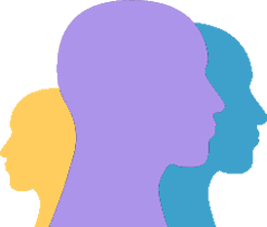
De stem van de patient
Zeldzame ziekten zijn vaak een combinatie van op zichzelf niet zo zeldzame aangeboren aandoeningen of ziekten die zich op verschillende leeftijden kunnen presenteren.
Sommige karakteristieke kenmerken worden niet herkend. Wanneer eenmaal een diagnose is gesteld is een multidisciplinaire samenwerking, tussen diverse medisch specialisten, de zorg bij huis, patiënt en familie noodzakelijk.
Internet Technologie in de zorg is de sleutel tot een medisch thuis, een netwerk van zorgverleners en diensten die informatie delen met de patiënt en de familie, waar ook. Nog steeds zijn de gegevens van de patiënt gesloten in IT systemen waartussen weinig uitgewisseld kan worden. MedMij gaat daar oplossingen voor bieden.
Ongeacht de aard van de aandoening, kan aan iedere ziekte een set aan international codes verbonden worden aan eerste kenmerken, diagnose en diagnostiek als ook behandeling en sociale diensten.
Een Medisch Thuis voor Zeldzame Ziekten
Mensen met een zeldzame aandoening beschouwen zich niet als patiënt. Het zijn mensen met gewone behoeften en willen het liefst gewoon zijn. Leren, deelnemen en spreken voor zichzelf.
Verschillende zeldzame ziekten dienen als een voorbeeld hoe deze zeer verschillende aandoeningen kunnen passen binnen een ‘medisch thuis’ of chronisch zieken model. Zorg bij huis waar mogelijk, specialistische zorg wanneer nodig en zelf management indien gewenst.
De informatie kwam tot stand met dank aan de initiërende patiënten organisaties, partners in het VWS voucherproject S06500 en in het innovatiefonds deelproject ‘Vroegsignaleren’.
Hieronder documenten en verslagen.
Balansen Stichting Rare Care World 2024 + 2025
Using Unified Modeling Language (UML) to Bridge Clinical Practice and Health Data Interoperability in Paediatrics, Presentatie Warschau, 18 oktober 2025
Een van de problemen bij het digitaal uitwisselen van gezondheidsgegevens is dat niet ieder land een zelfde code hanteert. Toch is dit het eerste vereiste voor de kwaliteit van de gegevens.
Er zijn bijvoorbeeld verschillende code-systemen voor lengte en gewicht. Registreren zij op dezelfde manier? En wat registreren ze: klein of groot? Vergeleken met welke normale waarden? In dat geval zal iemand met dwerggroei (achondroplasie) altijd te klein zijn. Maar als we willen weten hoe een medicijn werkt, willen we toch juist een toename van de groei kunnen zien?
Het is mogelijk om per aandoening een API (Application Programming Interface) te maken op basis van een medische richtlijn, waardoor applicaties of omputerprogramma's met elkaar communiceren. Deze kan door de software ontwikkelaar overgenomen worden in het elektronische dossier.
Deze presentatie is een pleidooi voor eenheid in codering.Kenmerken van een zeldzame, complexe aandoening zijn al snel na de geboorte zichtbaar. Kinderen over de hele wereld worden vanaf jonge leeftijd gevaccineerd tegen onder andere kinkhoest en mazelen om ernstige complicaties te voorkomen. Tijdens deze controles worden ook andere gegevens geregistreerd.
Daarom pleiten wij ervoor om naast een digitale internationale patient samenvatting ook een internationale kind samenvatting te maken, zodat de gegevens over verschijnselen en ziekten landelijk, Europees en wereldwijd kunnen worden uitgewisseld.
Vragenlijst ICF zoals gebruikt tijdens de test van Stichting RCW ism Open Heath Hub, 2024/2025
"Artsen die alleen het ziektebeeld zien, missen belangrijke informatie. Wat hebben patiënten naast medicijnen of behandeling nog meer nodig? Met patiëntgerichte vragenlijsten brengen zij dat straks in beeld" *
In een interview in de nieuwsbrief van de Vereniging ME/CVS vertelt Liesbeth Siderius dat die vragenlijsten er zijn en gebruikt kunnen worden.*introductie bij het interview
National Institute of Empowerment of Persons with Intellectual Disabilities of India co-organized a training on the International Classification of Function (ICF) on July 26th.2025. We were honoured to present on what one needs to know about digitalizing health and well-being. Digitalisation means computers talking in codes, standards and terminologies in relation to each other. Computers can do that for us, ones we have made them understand the meaning of the codes and the structures needed. Learn more about the ICF as a computer vocabulary and how the ICF can help you.
Sahan Damsiri Perera (a)
Liesbeth Siderius (b)
a .) University of South Australia b .) Foundation Rare Care World & Foundation Shwachman Diamond Syndrome
Balansen Stichting Rare Care World 2019 - 2024
Evidence based guidelines are the basis of global child health care. Clinical data points derived from guidelines by clinicians serve as interoperable terminologies. Care delivery is ‘translated’ into digital language as JSON. FHIR enables semantic interoperability in health information exchange standards systems for clinical and administrative content. A defined FHIR profile can be offered as application programming interface (API) to enable two or more computer programs to communicate with each other.The ICF is a patient centric terminology, which should be included in FHIR profiles.
Dissemination and generation of knowledge on complex diseases in children depends on the availability and interoperability of primary child health data.
We identified a structured set of interoperable international data terminologies such as the International Classification of Diseases (ICD) and International Classification of Function (ICF) as well as the numerical Logical Observation Identifiers Names and Codes (LOINC). To develop comprehensive implementation guide that harnesses digital terminologies and HL7/FHIR standards to facilitate seamless integration of guidelines such as the WHO's quality healthcare standards into diverse primary care environments for children and adolescents.
